Publications
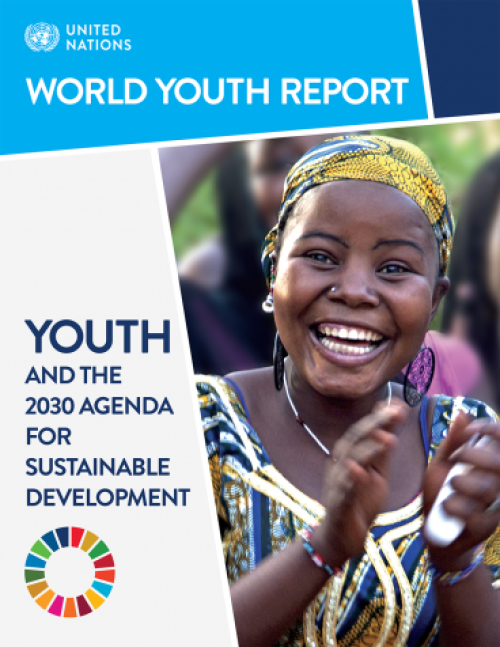
The World Youth Report on “Youth and the 2030 Agenda for Sustainable Development”, prepared by the United Nations Department of Economic and Social Affairs (UN DESA), examines the mutually supportive roles of the new agenda and current youth development efforts. The report provides insight into the role of young people in sustainable development in the context of the implementation of the 2030 Agenda for Sustainable Development and related frameworks, in particular, the Addis Ababa Action Agenda of the Third International Conference on Financing for Development and the World Programme of Action for Youth.
The Report considers the role the 2030 Agenda can play in enhancing youth…
A fast-changing climate, conflict, inequality, persistent pockets of poverty and hunger and rapid urbanization are challenging countries’ efforts to achieve the Sustainable Development Goals (SDGs), according to the UN’s latest SDG progress report.
The Sustainable Development Goals Report 2018 found that conflict and climate change were major contributing factors leading to growing numbers of people facing hunger and forced displacement, as well as curtailing progress towards universal access to basic water and sanitation services.
For the first time in more than a decade, there were approximately 38 million more hungry people in the world, rising from 777 million in…
There are now an estimated 258 million people living in a country other than their country of birth — an increase of 49% since 2000 — according to new figures released by UN DESA today, on International Migrants Day. The International Migration Report 2017 (Highlights), a biennial publication of the department, states that 3.4% of the world’s inhabitants today are international migrants. This reflects a modest increase from a value of 2.8% in 2000. By contrast, the number of migrants as a fraction of the population residing in high-income countries rose from 9.6% in 2000 to 14% in 2017.
The report reviews the latest migration trends, assesses the demographic contribution of…
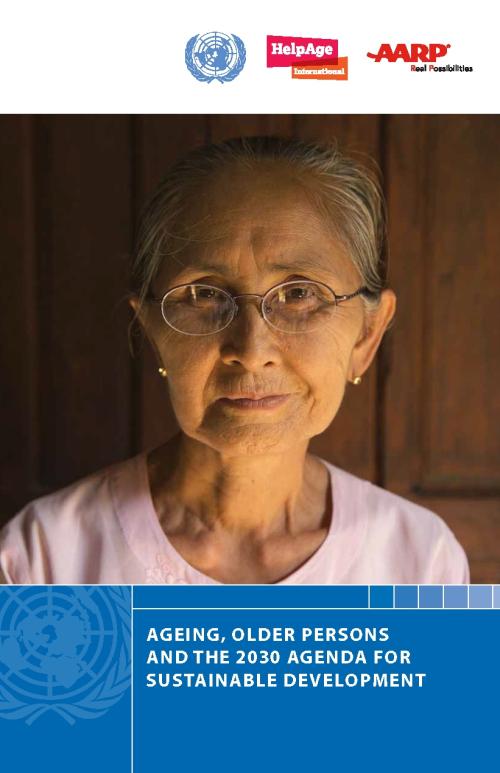
The 2030 Agenda for Sustainable Development sets out a universal plan of action to achieve sustainable development in a balanced manner and seeks to realize the human rights of all people. It calls for leaving no one behind and for ensuring that the Sustainable Development Goals (SDGs) are met for all segments of society, at all ages, with a particular focus on the most vulnerable—including older persons.
Preparing for an ageing population is vital to the achievement of the integrated 2030 Agenda, with ageing cutting across the goals on poverty eradication, good health, gender equality, economic growth and decent work, reduced inequalities and sustainable cities. Therefore, while…
If the world is to eradicate poverty, address climate change and build peaceful, inclusive societies for all by 2030, key stakeholders, including governments, must drive implementation of the Sustainable Development Goals (SDGs) at a faster rate, according to the The Sustainable Development Goals Report 2017, launched by UN Secretary-General Antonio Guterres.
Using the most recent data available, the annual Sustainable Development Goals Report provides an overview of the world’s implementation efforts to date, highlighting areas of progress and areas where more action needs to be taken to ensure no one is left behind. The Sustainable Development Goals Report 2017report found that…

In Africa, as in other regions, persons with disabilities are disproportionately likely to live in poverty and, too often, lack access to education, health care, employment opportunities, housing, social protection systems, justice, cultural expression and participation in political life. The ability of persons with disabilities to participate in society is often frustrated because physical environments, transportation and information and communications systems are not accessible.
In this context, a Toolkit on Disability for Africa has been developed by the United Nations Department of Economic and Social Affairs (UNDESA), Division for Social Policy and Development (DSPD). It is…
Launching the first-ever Sustainable Development Goals report on the new global development agenda adopted in 2015, Secretary-General Ban Ki-moon said that the 15-year undertaking was “off to a good start” but would require all parts of the UN family and its partners to work together.
“We have embarked on a monumental and historic journey,” the Secretary-General told the UN High-level Political Forum on Sustainable Development (HLPF), which opened on 11 July and ended on 20 July 2016, at the UN Headquarters in New York.
“We must all learn, in national governments, in local authorities, in business and civil society, and also at the United Nations, to think differently,” he…
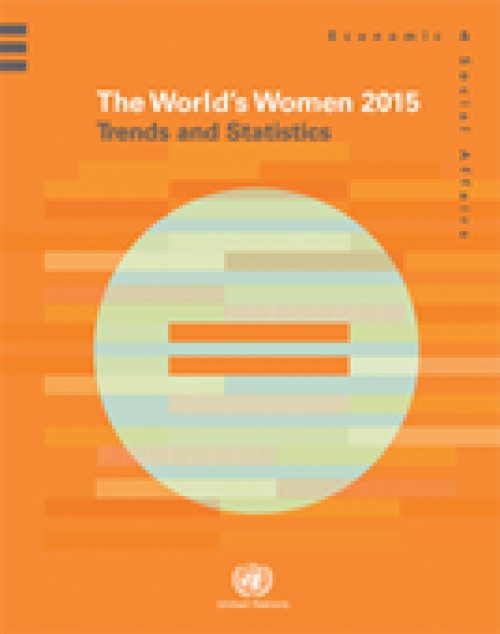
The lives of women and girls around the world have improved in several areas over the last 20 years, according to the new UN DESA report “The World’s Women 2015,” launched today. Coming on the heels of the recently adopted Sustainable Development Goals (SDGs), this new set of data on women and girls worldwide brings into sharp perspective the need for gender equality outlined in Goal 5.
“We cannot achieve our 2030 Agenda for Sustainable Development without full and equal rights for half of the world’s population, in law and in practice,” said UN Secretary-General Ban Ki-moon at a recent event on gender equality organized on the side of the Sustainable Development Summit.…
Evidence shows that the global Goals worked. They galvanized the entire global community to address the most pressing issues at the beginning of the Millennium, centered in lifting people from extreme poverty and improving the lives of those most disadvantaged. “The MDG experience provides compelling evidence that the international community can be mobilized to confront complex challenges. Governments, civil society and a wide range of international actors coalesced behind the MDGs in a multi-front battle against poverty and disease,” said Secretary-General Ban Ki-moon.
They served as a framework for local, national, regional and global monitoring of development progress…
Millions of people’s lives have improved due to concerted global, regional, national and local efforts to achieve the Millennium Development Goals (MDGs), which serve as the foundation for the next global development agenda, according to the report launched by the Secretary-General on 7 July 2014.
With many MDG targets already met on reducing poverty, increasing access to improved drinking water sources, improving the lives of slum dwellers and achieving gender parity in primary school, the report says many more targets are within reach by their 2015 target date. If trends continue, the world will surpass MDG targets on malaria, tuberculosis and access to HIV treatment, and the…
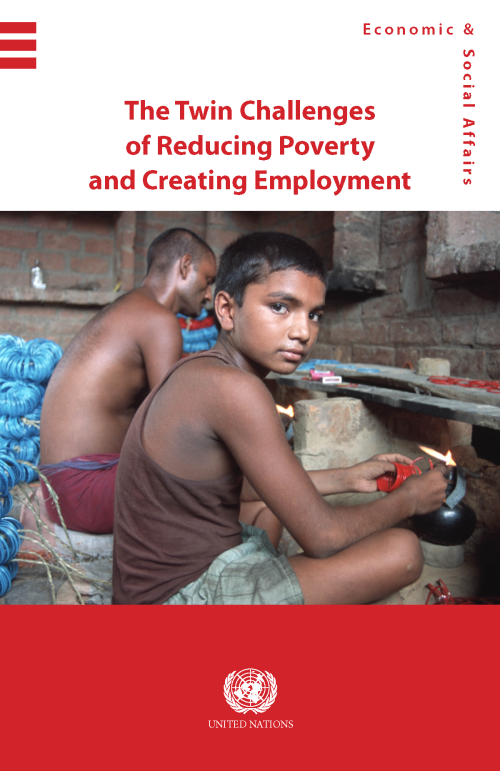
This E-publication is based on papers presented at two Expert Group Meetings (jointly organized by DSPD and the ILO) that brought together specialists to undertake a review of progress in eradicating poverty and to analyse policy responses to the global jobs crisis in different countries and regions of the world. It calls for a reorientation of macroeconomic policies from the current heavy emphasis on short-term stability to the promotion of sustained, inclusive and equitable growth. It stresses the need for the integration of social and economic policies to enable the attainment of people-centred development outcomes.
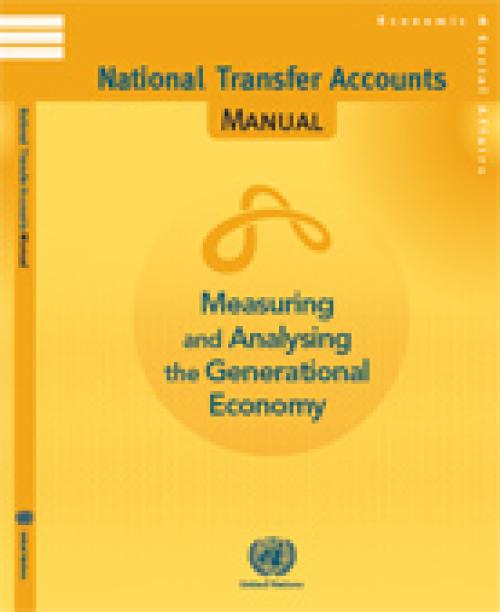
The publication provides a coherent accounting framework of economic flows from one age group or generation to another, typically for a national population in a given calendar year. This manual presents the concepts, methods and estimation procedures to measure these flows over the life-cycle. The NTA estimates are useful to understand and analyse the implications of changing age structures for the fiscal sustainability of social programs, the accumulation of physical and human capital, economic growth, and familial support for children, youth and older persons.
National Transfer Accounts are consistent with the System of National Accounts (SNA), and provide measures by single…
 Welcome to the United Nations
Welcome to the United Nations